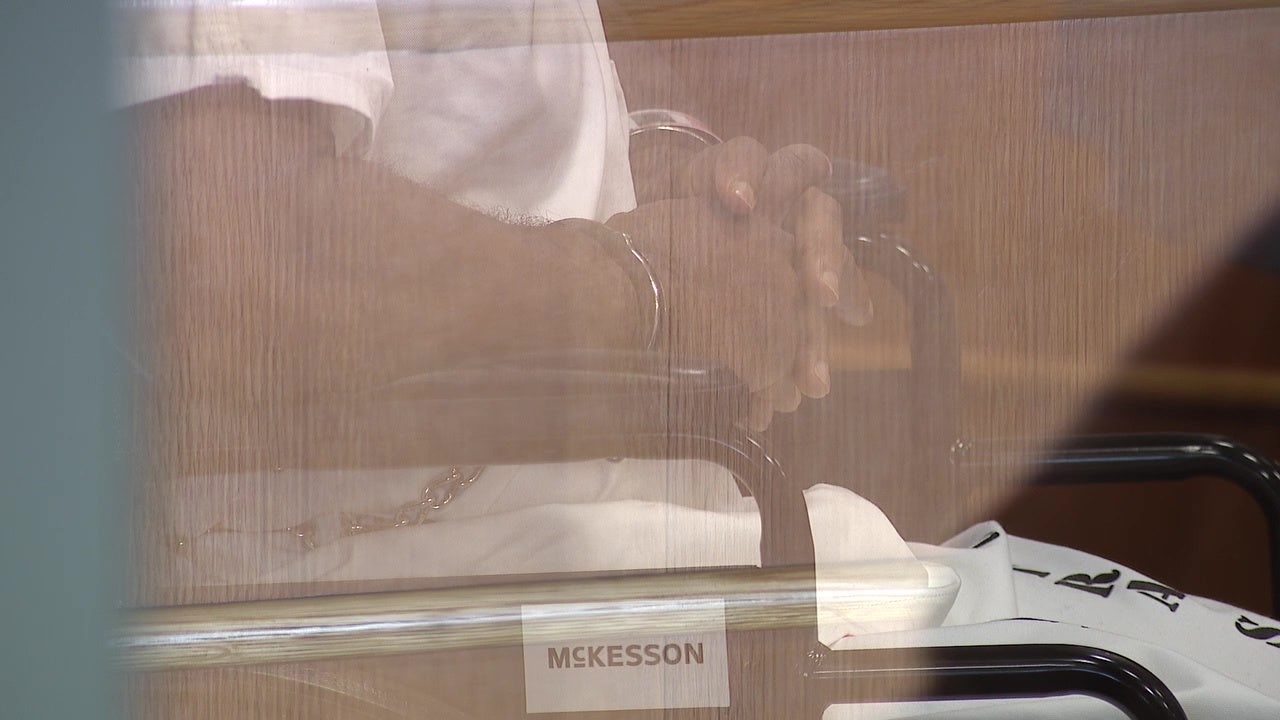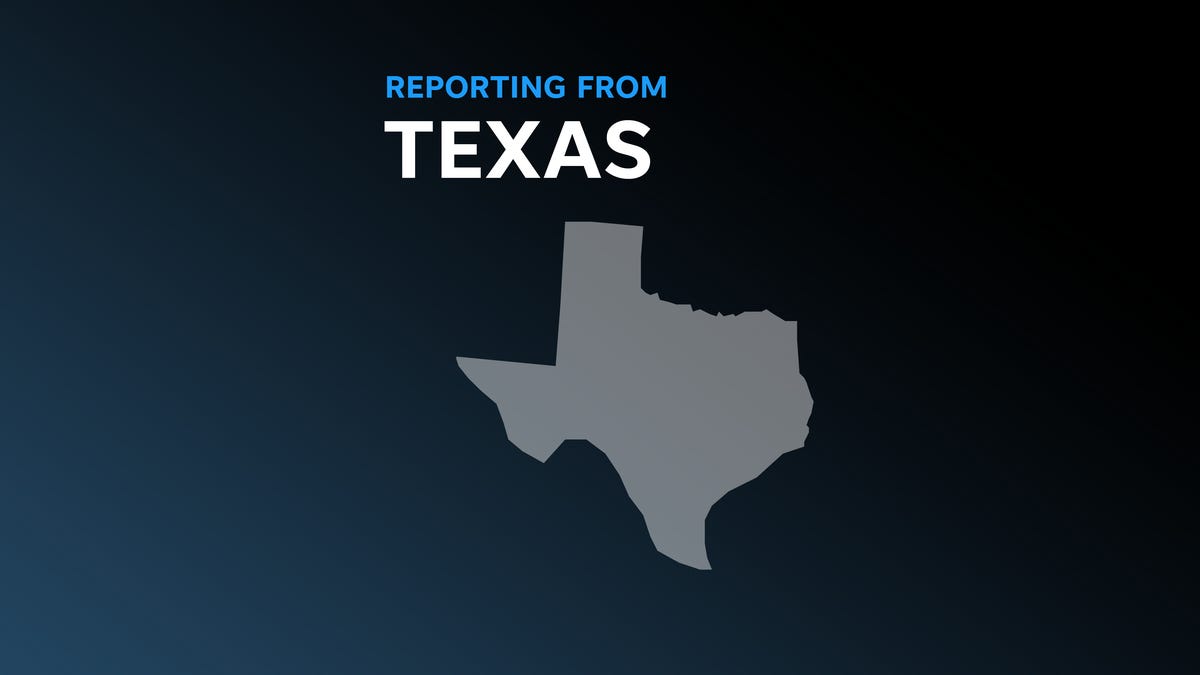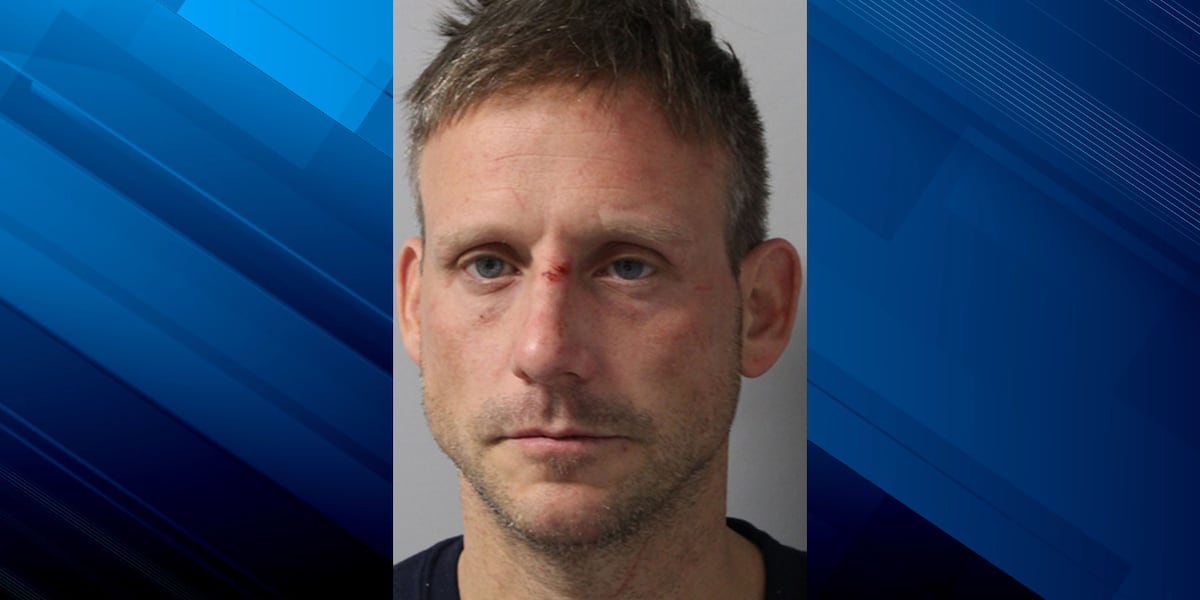Pennsylvania
Self-described ‘human blood artist’ pleads guilty to trafficking human remains from Harvard medical school

A self-described “human blood artist” from Pennsylvania who was busted for peddling body parts — some belonging to children — has pleaded guilty in federal court to trafficking in human remains.
Jeremy Pauley, 41, of Enola, was initially arrested and charged with abuse of a corpse, receiving stolen property and dealing in proceeds of unlawful activities.
During a Friday appearance in US District Court in Scranton, Pauley admitted to his role in a nationwide network of people who bought and sold human remains stolen from Harvard Medical School and an Arkansas mortuary.
He entered his guilty plea before U.S. District Court Judge Matthew W. Brann to conspiracy and interstate transportation of stolen property.
Pauley — a body modification artist whose face is covered with tattoos and whose head is decorated with metal spikes — posted pictures of bags and piles of femurs, vertebrae, clavicles, ribs and human teeth for sale on his now-deleted Facebook page.

The Facebook page Pauley used to market his body parts is called “The Grand Wunderkammer,” which uses the descriptor, “Vendors of the odd and unusual, museum exhibits, guest lectures, live entertainment, and so much more! Strange, curious, and unique in every way possible!”
Pauley told police he was a collector of “oddities,” and claimed the remains were purchased legally, according to authorities. Cops initially found what they described as older human remains including full skeletons that they determined were lawfully obtained.
However, after a second tip about newer remains in Pauley’s home, investigators returned to the house to find more recent purchases.


Police found three five-gallon buckets containing assorted body parts, including two brains, human skin and fat, a heart, a kidney, livers, lungs, a trachea and a child’s mandible with teeth, according to a criminal complaint cited by Fox 43.
Federal and state law enforcement agents later intercepted packages addressed to Pauley from an Arkansas woman, Candace Scott, that allegedly contained body parts.
Pauley told investigators he intended to resell the body parts, according to the affidavit. Investigators allege Pauley arranged to pay Scott $4,000 for the body parts — including half a human head — through Facebook Messenger.
Scott and five others have been charged along with Pauley and are pending trial, the US Attorney’s office said.

Pennsylvania
Pennsylvania lawmaker’s bill would crack down on ghost guns made by 3D printers

Watch CBS News
Be the first to know
Get browser notifications for breaking news, live events, and exclusive reporting.
Pennsylvania
3 Winning Lottery Tickets Sold In Philadelphia Recently

PHILADELPHIA — Three Pennsylvania Lottery tickets sold in Philadelphia recently have been named winners in separate contests, according to officials.
In the Saturday drawing for the Treasure Hunt game, five tickets won.
One of the tickets that matched all five numbers drawn, 2-6-10-25-26, was sold at 7-Eleven, 3301 Tyson Ave. in Philadelphia. The other was sold at Omgn Inc., 2100 East Allegheny Ave., also in Philadelphia.
Those ticket and three others split the jackpot prize of $139,917.50 to win $27,983.50.
The other winning tickets were sold in Bucks, Butler, and Lebanon counties.
More than 45,800 other Treasure Hunt tickets won prizes in the drawing. Players should check every ticket, every time.
Additionally, a West Philadelphia Wawa sold a winning lottery ticket.
Lottery officials Monday announced the winning Raffle ticket numbers drawn for the third, four $50,000 prizes in the 4s Galore Drawings as part of the New Year’s Millionaire Raffle.
The Wawa at 3744 Spruce St. sold a ticket between Dec. 3 and Dec. 16 that was selected in the drawing.
Other winning tickets were sold in Cumberland, Bradford, and Westmoreland counties.
The Raffle features four bonus drawings held every other week, each awarding four $50,000 prizes, leading up to the Millionaire Raffle drawing on Jan. 4, 2025.
To learn if your ticket won a $50,000 4s Galore Drawings prize, scan it using the ticket checker on the PA Lottery Official App or at a lottery retailer.
Pennsylvania
HS FOOTBALL: LFC and WVC players selected as finalists for Pennsylvania Player of Year Award; Call receives invites to showcase games

Several athletes from the Lackawanna Football Conference and District 2 are among the 55 finalists for the Pennsylvania Player of the Year award selected by the Maxwell Football Club.
Abington Heights wide receiver Shawn Theodore, Honesdale running back Mason Avery, Riverside tight end Richie Kostoff, Scranton Prep quarterback Louis Paris and Wyoming Area running back Lidge Kellum were listed among the 55 players who are Mini Max Award winners according to a release Monday night by the Maxwell Football account on X.
The Mini Max Awards are a prestigious honor for high school football players across the Tri-State Region that includes Pennsylvania, New Jersey and Delaware. This year is the first year District 2 players were included among the nominees.
Awards are presented at the annual Mini Max Dinner in Philadelphia on Feb. 2 at the Drexelbrook Convention Center in Drexel Hill. The award recognizes outstanding athletic achievement and sportsmanship in high school football.
In addition to the Mini Max Awards, the Maxwell Football Club also chooses the Player of the Year for Pennsylvania, New Jersey and Delaware. The event culminates with the Jim Henry Award, which goes to one of the three State Players of the Year.
Call receives invites
Valley View freshman lineman Brody Call received invites to three postseason games.
Call, a 6-0, 230-pound standout for the Cougars, is invited to the Offense-Defense All-American Bowl at AT&T Stadium in Arlington, Texas, on Dec. 26-29, the All-American Bowl on Jan. 17-20 in Miami, Florida, and the Polynesian Bowl Combine and Showcase in Las Vegas, Nevada, on March 21-22.
Call started every game for the Cougars and helped lead the team to the District 2 Class 4A championship and an 11-2 record.
Cesare ceremony
The 33rd Fiore Cesare Award and Scholarship ceremony is Friday at 2 p.m. at the Radisson Hotel in Scranton.
Mid Valley running back and defensive back Jakob Lesher, Delaware Valley quarterback and punter Logan Olsommer, Scranton Prep quarterback Louis Paris, Riverside quarterback Chase Taddonio and Western Wayne running back and defensive back Josh Vinton are the five finalists named by the Roy Davis Scranton Chapter of PIAA Football Officials.
-
/cdn.vox-cdn.com/uploads/chorus_asset/file/24924653/236780_Google_AntiTrust_Trial_Custom_Art_CVirginia__0003_1.png)
/cdn.vox-cdn.com/uploads/chorus_asset/file/24924653/236780_Google_AntiTrust_Trial_Custom_Art_CVirginia__0003_1.png) Technology6 days ago
Technology6 days agoGoogle’s counteroffer to the government trying to break it up is unbundling Android apps
-

 News7 days ago
News7 days agoNovo Nordisk shares tumble as weight-loss drug trial data disappoints
-

 Politics7 days ago
Politics7 days agoIllegal immigrant sexually abused child in the U.S. after being removed from the country five times
-

 Entertainment1 week ago
Entertainment1 week ago'It's a little holiday gift': Inside the Weeknd's free Santa Monica show for his biggest fans
-

 Lifestyle7 days ago
Lifestyle7 days agoThink you can't dance? Get up and try these tips in our comic. We dare you!
-
/cdn.vox-cdn.com/uploads/chorus_asset/file/25672934/Metaphor_Key_Art_Horizontal.png)
/cdn.vox-cdn.com/uploads/chorus_asset/file/25672934/Metaphor_Key_Art_Horizontal.png) Technology2 days ago
Technology2 days agoThere’s a reason Metaphor: ReFantanzio’s battle music sounds as cool as it does
-

 Technology1 week ago
Technology1 week agoFox News AI Newsletter: OpenAI responds to Elon Musk's lawsuit
-

 News3 days ago
News3 days agoFrance’s new premier selects Eric Lombard as finance minister



















